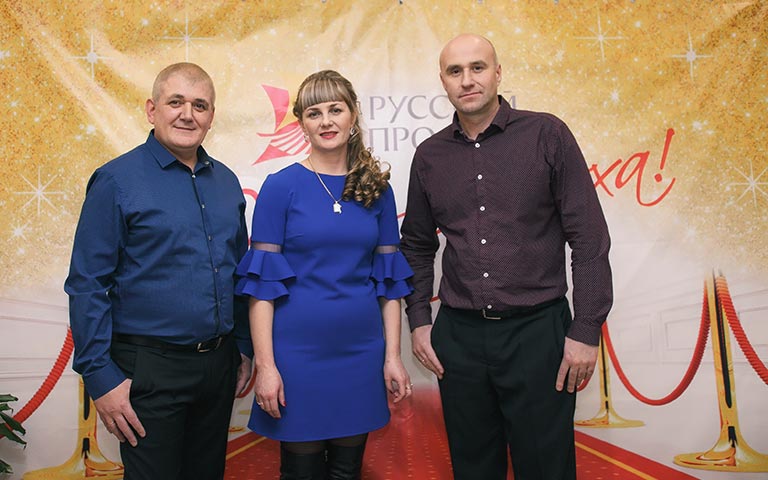Ersah Kahraman
We were at a friend’s baby birthday party when my phone rang. “Why is Yunus calling me now? It’s not a holiday,” I thought to myself.
“Hello, my dear?”
“Hey, what’s up?”
“Good, how about you?”
“Good. Listen, you’re going on stage in a month; I started a stand-up club.”
“What does that mean? Is it really that easy to start a comedy club?”
“Yep. I even came up with a name: Lemonade Comedy Club! How does that sound?”
“Did you really name it Lemonade because Cem Yılmaz came from Leman Culture?”
“What? What are you talking about?”
Since Yunus is about ten years younger than me, I thought about explaining how Leman Culture got its name from the magazine Leman, which was originally called Limon. When the cartoonists had a disagreement, a group split off to form Leman. But then I thought, why ruin the kid’s excitement?
“Great job! I’m all set. Always ready.”
And that “always ready” isn’t just a joke. I performed my first stand-up show when I was 14, in the school theater, in front of some classmates and a few teachers. I still remember it clearly. I wore those baggy pants that are trendy with kids who listen to rap now—huge, camo-colored pants, a black t-shirt, and an unbuttoned long-sleeve shirt over it. I set up two black stands as a backdrop and taped papers with the names of great comedians I admired on them. The show went okay, except for the part where I impersonated Süleyman Demirel. After it went well, I repeated the same show for the same audience, inviting other teachers. I thought to myself, “You can’t tell the same joke twice; you have to add something extra.”
Since I had seen Ferhan Sensoy’s “Ferhangi Şeyler” live at age ten, I thought of the current events jokes that greats like him would make by reading newspapers. So, for the second show, I cut out interesting stories from the daily Hürriyet that my dad brought home every evening and added them to my stories. One article was about a woman insuring her breasts. When I made a joke about it—thinking it was funny—our conservative teacher, Emine Hoca, stormed out. As a seasoned comedian, I thought I should throw a dig at her as she left, but I caught the eye of the vice principal, Selman Bey, who gestured with his eyebrows, “Don’t do it.” So, I didn’t. What else could I do? After that, Emine Hoca didn’t speak to me for two months, and Selman Hoca banned me from doing stand-up again. I was a young stand-up comic who got grounded for it!
Fast forward 28 years (yes, twenty-eight), and I’ve grown a bit rusty; but ever since I settled in England, I’ve always had this dream: a stage environment where I can say, “Is there anyone else who wants to tell stories?” Then I’d perform, and after a thunderous applause, I’d have a chance to do it regularly. That’s why for the past 13 years (yep, thirteen), I jot down any details I find interesting in my phone or little notebook. At the first meeting of the team, while everyone was discussing the number of jokes they had, when I scrolled down my notes, they thought I was joking. “I’ve been waiting for this opportunity for years!” I said, but no one seemed to care.
Of course, performing on stage is a whole different ballgame. There’s timing, delivery, movement, voice tone—the whole package. It’s not like everyday life. I can easily use Cem Yılmaz’s tone and jokes in my daily life, and everyone knows I picked that up from him. I was 13 when I saw Cem Yılmaz live on stage. (Now, think about it chronologically: at 7, I saw Zeki Alasya and Metin Akpınar; at 8, Nejat Uygur; at 10, Ferhan Sensoy; at 13, Cem Yılmaz; and at 14, Demet Akbağ and Yılmaz Erdoğan live.) It’s great to impersonate these masters, but if you do it on stage, people will tear you apart. They’ll say, “Cem Yılmaz does this!” Most of the audience wouldn’t know names like Sadri Alışık, Vahi Öz, Altan Erbulak, or Savaş Dinçel, nor have they seen Ace Ventura or any movie featuring the ZAZ trio, let alone recite a Vitamin song from memory. And they’d be right! If you don’t have your own style on stage, you’re done for!
That’s why, on my first night, my show, originally planned to be 15 minutes (yes, I said fifteen), wrapped up in just 12 minutes. “I must keep the pace, the tempo,” I thought, and the show flew by like a Scud missile. Don’t get me wrong, it wasn’t too bad. I got a few claps, a lot of reactions, and I stepped off the stage feeling like “I’m the king of the stage!” What was I wearing that first night? A black t-shirt and an unbuttoned long-sleeve shirt. Some things never change, even after twenty-eight years, except for those baggy camo pants.
As I said, since I’ve been jotting down notes since I came to England, I’ve been rehearsing in front of the bathroom mirror. And what a stage it is! Since moving to England, we’ve changed houses four times, which means four different stages! My wife has started saying, “What are you doing, crazy? Are you talking to yourself again?” Sometimes I’d spend an hour performing in front of the mirror. Now Yunus occasionally says, “Hey, are you going to change your routine a bit?” I say, “Come on! The audience is different every time, thank goodness. There’s nothing to change!” I can’t seem to explain it. I’ve told him a hundred times; I’ve got enough material for at least nine more shows. Just let me know about the audience!
So, dear friends, I was already doing stand-up in England. Lemonade came later. Thank goodness it did. If Lemonade Comedy Club hadn’t been born, all my jokes would have slipped through the mirror and gone down the toilet!
Thank you, Lemonade!
Long live Lemonade!

